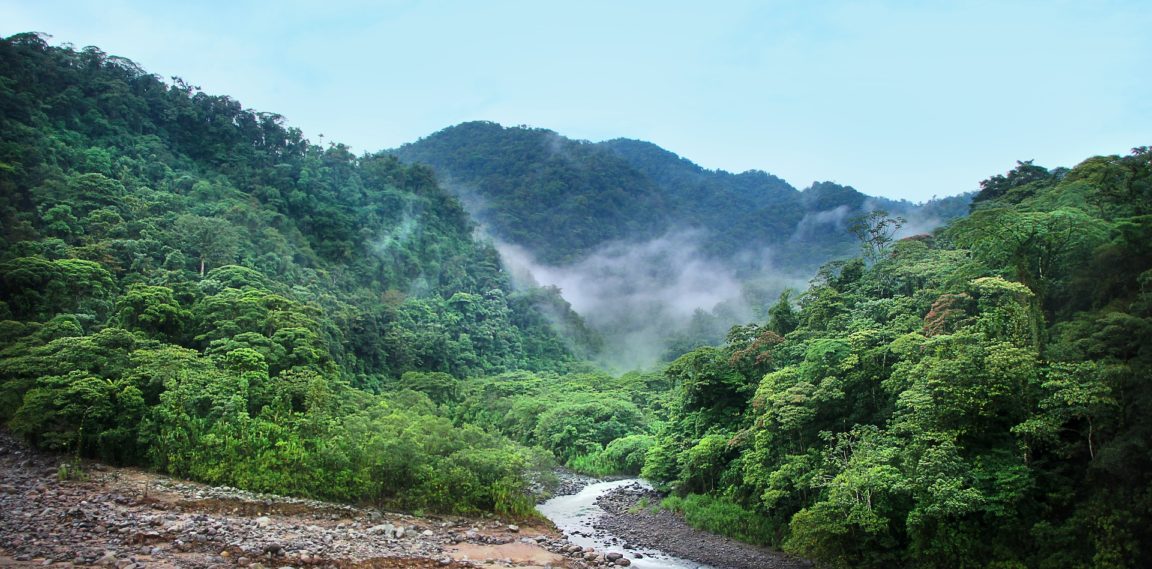Can I simply offset my emissions if I don't want to choose between air travel and climate protection? No, says Thomas Fatheuer, former head of the Heinrich Böll Foundation's office in Brazil and employee of the Research and Documentation Center Chile-Latin America (FDCL). In an interview with Pia Voelker, he explains why.
A post by Pia Volker "Editor and specialist for the Gen-ethische Netzwerk eV and editor for the online magazine ad hoc international"
Pia Voelker: Mr. Fatheuer, compensation payments are now widespread and are also used in air traffic. How do you rate this concept?
Thomas Fatheuer: The idea of compensation is based on the assumption that CO2 equals CO2. According to this logic, CO2 emissions from the combustion of fossil energy can be exchanged for the storage of CO2 in plants. For example, a forest is being reforested with a compensation payment project. The CO2 saved is then offset against the emissions from air traffic. However, this connects two cycles that are actually separate.
A particular problem is that we have largely destroyed forests and natural ecosystems worldwide, and with them biodiversity. That is also why we have to stop deforestation and restore forests and ecosystems. Seen globally, this is not an additional power that could be used to compensate.
Voelker: Are there compensation projects that are more effective than others?
Fatheuer: Individual projects can be quite effective. Whether they serve a meaningful purpose is another question. Atmosfair, for example, is certainly reputable and has a reputation for supporting projects that benefit smallholders by promoting agro-forestry systems and agro-ecology.
Voelker: Many of these projects are carried out in countries in the Global South. Viewed worldwide, however, most of the CO2 emissions are caused in industrialized countries. Why is there no compensation where the emissions are caused?
Fatheuer: That is exactly part of the problem. But the reason is simple: Normal referrals are cheaper in the Global South. Certificates from REDD projects (Reducing Emissions from Deforestation and Forest Degradation) in Latin American countries that focus on reducing deforestation are significantly cheaper than certificates that promote the renaturation of moors in Germany.

Voelker: Proponents of the compensation logic argue that the initiatives behind the projects not only endeavor to save greenhouse gases, but also try to improve the living conditions of the local population. What do you think about it?
Fatheuer: That can be true in detail, but isn't it perverse to treat the improvement of people's living conditions as a kind of side effect? In technical jargon it is called “Non-Carbon-Benefits” (NCB). Everything depends on the CO2!
Voelker: What can CO2 compensation do in the fight against climate change?
Fatheuer: Not one gram of CO2 less is emitted through compensation, it is a zero-sum game. Compensation does not serve to reduce, but rather to save time.
The concept gives the dangerous illusion that we can go on happily and solve everything through compensations.
Voelker: What do you think should be done?
Fatheuer: Air traffic must not continue to grow. Challenging air travel and promoting alternatives should be a priority.
The following demands, for example, would be conceivable for a short-term agenda in the EU.
- All flights under 1000 km should be discontinued, or at least drastically increased in price.
- The European train network should be promoted with pricing that makes rail travel up to 2000 km cheaper than flights.
In the medium term, the aim must be to gradually reduce air traffic. We also need to encourage the use of alternative fuels. However, this should not include “biofuels”, but rather synthetic kerosene, for example, which is generated using electricity from wind energy.
In view of the fact that not even a kerosene tax is politically enforceable at the moment, such a perspective seems rather utopian.
"As long as air traffic is growing, compensation is the wrong answer."
I could only imagine compensation to a certain extent as a meaningful contribution if it were embedded in a clear degrowth strategy. In today's conditions, it is rather counterproductive because it keeps the growth model going. As long as air traffic is growing, compensation is the wrong answer.
Thomas Fatheuer Headed the Brazil office of the Heinrich Böll Foundation in Rio de Janeiro. He has lived in Berlin as an author and consultant since 2010 and works at the Research and Documentation Center Chile-Latin America.
The interview first appeared in the online magazine “ad hoc international”: https://nefia.org/ad-hoc-international/co2-kompensation-gefaehrliche-illusionen-fuer-den-flugverkehr/
This post was created by the Option Community. Join in and post your message!



